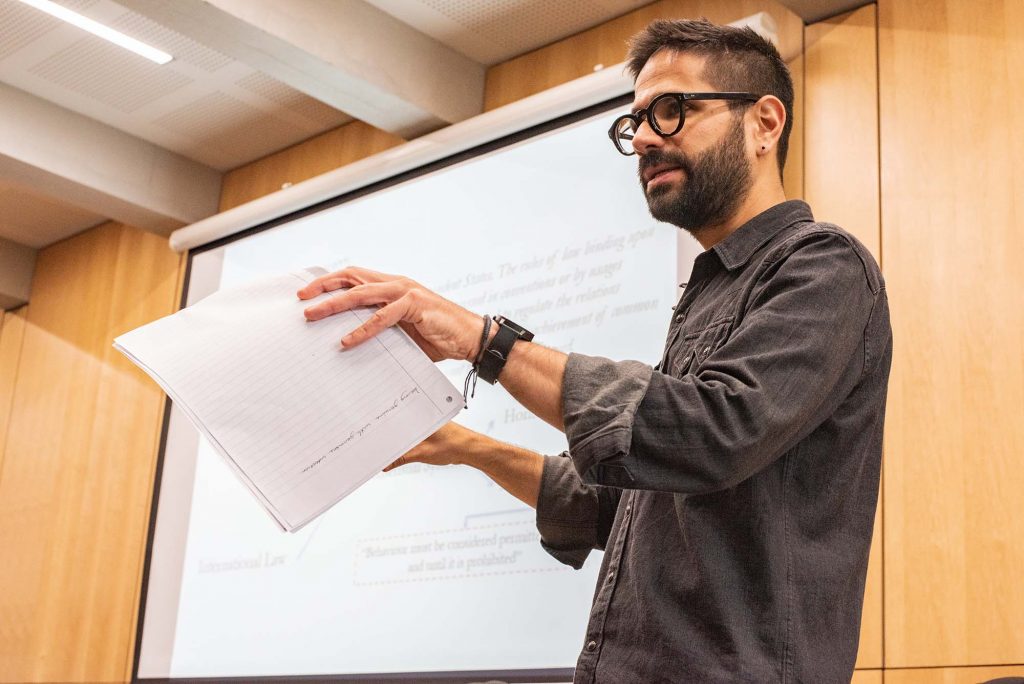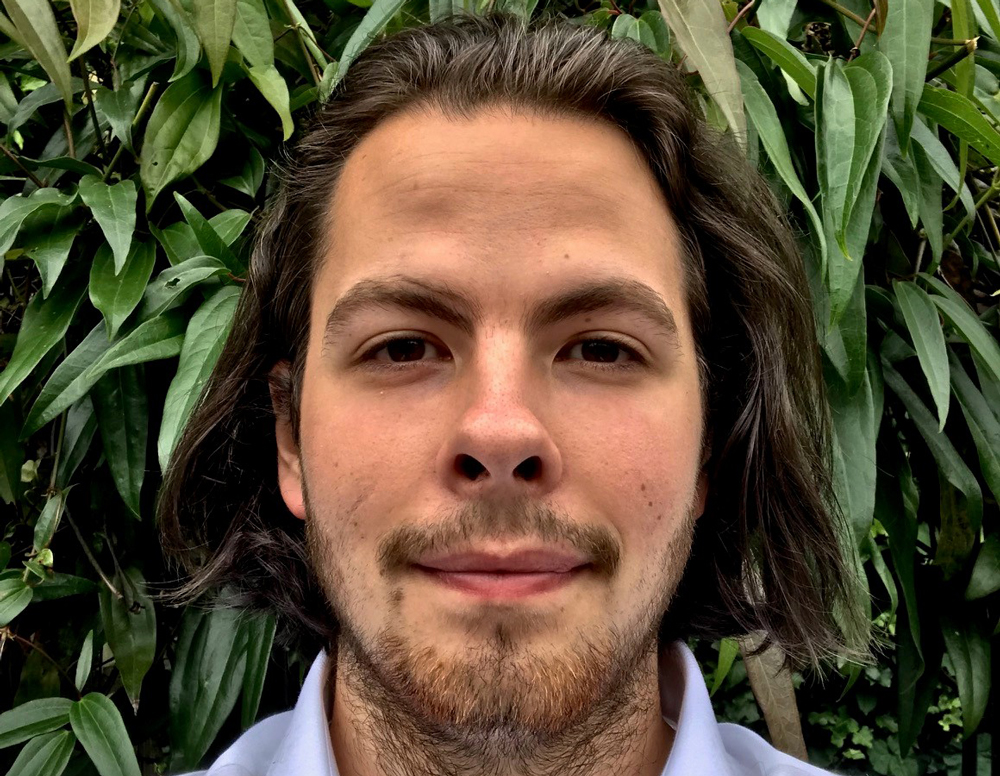George, who graduated from Kent last year with a First Class Honours degree in European Legal Studies, spent a month working with Dr Eslava as part of the Law School’s Research Assistant Scheme. Their chapter on ‘Cities, Post-Coloniality and International Law’ will be published in the forthcoming Elgar Research Handbook on International Law and Cities.
The Handbook, edited by Professor Helmut Philipp Aust (Freie Universität Berlin) and Professor Janne Nijman (Graduate Institute Geneva), brings together an impressive list of international renowned and innovative scholars and will be the first comprehensive volume on the history and changing relationship of cities in international law.
George worked under Dr Eslava’s supervision last summer, during the final year of his degree. Dr Eslava said: ‘George did a fantastic job helping me to compile a series of case studies that I was planning to use in the chapter I’d been commissioned for the Handbook. In fact, he did such a good job that I asked the editors to allow me to invite him to join me in the process of writing the chapter.’
The chapter surveys the complex and long history of cities in the Global South and their relation to the international legal and economic order. Dr Eslava said: ‘George’s work on the case studies – all dealing with World Bank lending agreements with national and local governments in the developing world – was really important in helping us to demonstrate how, underpinning the current re-emergence of cities in international law, there is still an attempt to organise and regularise urban life through multi-scalar governance structures. For us these structures have developed from a paradigm of direct imperial control over colonial cities, to a moment in which local life came to be organised through national logics, to the present resurgence of the local and municipal in more decentralised and indirect ordering processes.’
The collaborative opportunity proved mutually beneficial. George was encouraged to develop his own ideas which Dr Eslava then welcomed into his research on the ways in which international law has come to shape people’s everyday lives and spaces.
George said: ‘This project has provided me with an acute appreciation for an increasingly important dimension of the international legal architecture. The (re)turn to the city is a development that speaks to vital themes such as the instrumentalization of developing economies and international law’s longstanding patterns of authority and authorship. I am delighted to have contributed to the first research handbook directly addressing this topic.’
During his time at Kent Law School, George was also Editor-in-Chief of the Kent Student Law Review and got involved with activities organised by the Centre for Critical International Law (CeCIL). He spent his year abroad studying law at Maastricht University. Shortly before graduating, George took the opportunity to interview Professor Antony Anghie, a globally renowned international law scholar and expert who was awarded an Honorary Doctor of Laws degree from Kent – his article, ‘International Law’s Past, Present and Future: A conversation with Antony Anghie‘ is available to read on our Countercurrents blog.
George is currently completing his LLM in Public International Law at Cambridge and hopes to pursue a career centred around international legal research. He credits the culture of critical legal research at Kent with giving him the confidence and freedom to develop his own critical outlook on international law: ‘The opportunity to gain first-hand immersion in legal research helped me to identify, understand and critique the tensions that govern the law. I am indebted to numerous members of the academic staff, whose insight and support throughout and beyond my time at Kent Law School continues to prove invaluable.’


